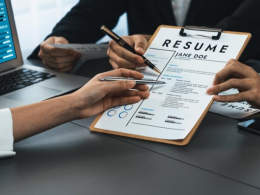Are you ready for the future of work? Artificial intelligence is set to revolutionize the employment landscape in ways we can only imagine. From automated job interviews to algorithm-based hiring decisions, AI will reshape how we find and keep our dream jobs. In this blog post, we’ll take a closer look at how AI will change the world of work by 2023 and what it means for employees and employers alike. So buckle up, because the future is now!
Why AI is important
Artificial intelligence (AI) is an emerging technology that can be used to automate tasks and processes in business, education, health care, and other areas. As AI continues to evolve and grow in sophistication, it will have a significant impact on how people work and how businesses operate.
There are many potential benefits of using AI in the workplace. For example, AI could help businesses save time and money by automating tasks that currently require human input. In addition, AI could help employees learn new skills more quickly and efficiently. And finally, AI could enable companies to identify and prevent cyberattacks more easily.
However, there are also concerns about the impact of AI on employment. For example, some experts worry that companies will use AI to eliminate jobs rather than create them. And others worry that robots will take over many low-paid jobs – leaving workers without any opportunity for growth or advancement.
While the future of work is still unclear – and no one knows for sure how AI will affect employment – it’s worth keeping tabs on as this technology rapidly grows in popularity and complexity.
How AI will impact the workforce
AI has the potential to revolutionize the way we work, by making it easier for people to find new jobs and providing greater flexibility in how we do our jobs. Some experts believe that AI will create a “third wave” of automation, which will lead to mass unemployment. However, there are also those who think that AI will actually increase the number of jobs available, by making it more efficient and effective for companies to manage their businesses.
There are many ways that AI could impact the workforce. For example, AI could help automate some jobs currently performed by humans. This could reduce the number of workers needed in certain sectors, while also freeing up time for other workers to take on new tasks. Alternatively, AI could be used to create completely new types of jobs – such as computer-generated financial advisors or digital marketing specialists. In either case, it is likely that the overall workforce size will change as a result of this technology.
One thing is for sure: The future of work is going to be very different from what we’re used to. As artificial intelligence continues to develop, it’s important that employers understand its potential effects so they can make informed decisions about how best to use it in their businesses.
What jobs will be replaced by AI in the future
There are a number of jobs that will be replaced by AI in the future. Jobs that are at high risk of being replaced include jobs in logistics, sales, and clerical work. Jobs that are more likely to be replaced by AI include jobs in fields such as law, mathematics, and engineering. In the long term, it is likely that most jobs will be replaced by some form of AI.
The benefits of AI for the workforce
At its core, artificial intelligence is a computing technology that allows machines to learn and work on their own. This process of allowing machines to ‘learn by doing’ has already had a significant impact on many industries, from manufacturing to customer service. And it’s only going to become more important in the future as automation continues to take over more and more tasks.
The benefits of AI for the workforce are numerous and varied. Some of the most notable include:
1) Increased productivity: Automation can free up employees to do higher-value tasks, leading to increased production and overall efficiency.
2) Reduced workload: With machines taking over routine tasks, employees can focus on more complex or creative assignments. This not only leads to improved performance but also ensures that businesses maintain flexibility and agility in their operations.
3) Improved customer service: As customers interact with automated systems instead of human beings, they’re generally treated with greater courtesy and responsiveness. This reduces frustration levels and improves overall satisfaction rates – something that businesses could really benefit from in the future.
4) Enhanced safety standards: By automating processes, businesses can ensure safety levels are maintained even during peak hours. This is particularly important in sectors such as healthcare where lives are at stake.
The challenges of AI for the workforce
AI has the potential to dramatically alter the way we work, and employers need to be prepared for the changes. Here are some of the challenges employers will face as AI becomes more widespread:
1. Automating repetitive or mundane tasks.
As AI becomes more capable, it can begin automating tasks that are seen as mundane or repetitive. This could lead to a reduction in human labor force, as machines take on more of the routine work. Employers will need to decide which jobs they want to automate and determine how they will compensate employees who lose their jobs as a result.
2. Reducing job skills required.
As AI begins to learn from data, it is likely that it will become better at identifying and predicting trends than humans. This could lead to a reduction in the number of skills required for certain positions, as well as a shift toward roles that require less human knowledge and judgement. Employers will need to make sure their employees have the necessary skills for future job roles, or they could find themselves out of work entirely.
3. Creating new jobs – and displacing old ones – through automation and innovation.
Rather than reducing the number of jobs available, AI could create new ones through automation or innovation. For example, self-driving cars may eliminate many trucking jobs – but they may also create opportunities for people who are skilled in truck driving operations to transition into new careers in transportation management or logistics management. Employers will need to
Conclusion
The future of work is already here. In fact, it’s been here for a while – artificial intelligence (AI) has been making waves in the workforce for years now. And, according to some experts, this trend will only continue in the coming years. As automation and AI become more commonplace, many people are likely to see their jobs disappear over time. But that’s not necessarily a bad thing – as long as you’re ready for it. With so much change on the horizon, armed with knowledge about AI and its impact on the workforce, you’ll be positioned to take advantage of all that lies ahead. So what should you do to prepare? Start by reading our article on the future of work to get started!









